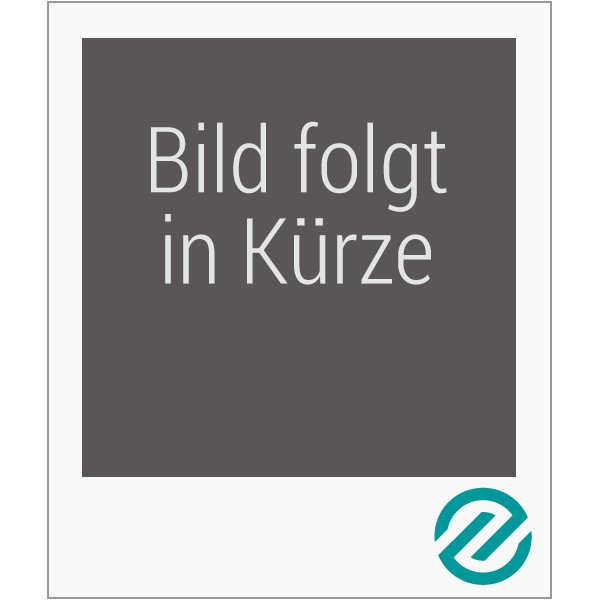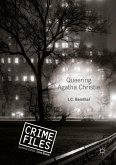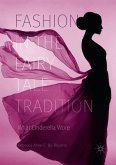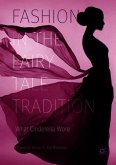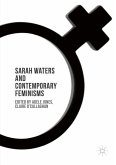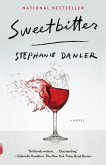In Diary of a Child Called Souad, El Saadwi gives us a young female protagonist whose spirit longs for freedom from the restraints in her world that she does not understand. Through Souad's eyes, we see the oppression of women within a household, as we witness her grandfather's fierce dominance over her family and her grandmother's and aunt's unbearable silence. With Souad's story, El Saadwi paints a precise, tragic portrait of the personal--yet universal--tragedy experienced by an entire society of Egyptian girls.
Hinweis: Dieser Artikel kann nur an eine deutsche Lieferadresse ausgeliefert werden.
Hinweis: Dieser Artikel kann nur an eine deutsche Lieferadresse ausgeliefert werden.
DIARY OF A CHILD CALLED SOUAD by NAWAL EL SAADAWI
REVIEW
1. The manuscript is an edition and translation of a juvenile work of fiction by the distinguished Egyptian feminist, Dr Nawal El Saadawi. Dr Omnia Amin introduces the work, placing it the context of the life and thought of its author. An interview by Omnia Amin is produced. Dr El Saadawi wrote the work as a school exercise. It was dismissed by the teachers and was rediscovered by the author decades later. It is the fictionalised life of a girl growing up, questioning everything.
2. The work is original, Dr El Saadawi is a global figure, active in human rights and her early work explains and highlights her early development.
3. There is a growing body of memoirs from the Middle East that illuminate the personal and the social. Although a novella, there is clearly much of the young Nawal in the story of Souad. Although the narrative is in the third person, necessarily because she dies at the age of twelve, Souad is Nawal.
4. The central text is extremely readable. It will be an enduring work. I would make a few recommendations:
4.1 A bibliography of Dr El Saadawi's works available in English. Some relevant works are listed on page 13; translators of all should be given.
4.2 The interview is undated. Was it originally in Arabic or English?
4.2 Some proof reading suggestions - this is not comprehensive. for example,
4.2.1 Conversations are printed in italics. Would it be better if each speech was given a separate paragraph, as is the custom in fiction? This would make it easier to read.
4.2.2 consistency in capitalising He (for God); see page 62 for examples.
4.2.3 page 3, line 3: The dates do not make sense. Omnia Amin met her at a conference in 2002 when Dr El Saadawi was 71, not 76.
4.2.4 page 6, line 6: has for have. (The subject, influence, is singular.)
4.2.5, page 9, middle of the page: The Novel should be italicised.
4.2.6, page 15, line 4: from childhood, not since childhood.
4.2.7, page 20, line 4: For the sake of clarity I would put yet between not and comprehend.
4.2.8, page 36, para 3, last quotation from the mother. It does not run smoothly.
4.2.9, page 41, para 3, line 2. Capital A for Almighty.
4.2.10, page 51. Last sentence is awkward and needs rewriting.
4.2.11, first line. Screamed for screams. (The Arabic tense has come into the English.)
4.2.12, page 73, fifth from last bullet point: I would put for more than fifty years after efforts. (She was not campaigning for a fifty year limit on FGM.
4.2.13, page 73, last bullet point: Not totally clear, on second line, perhaps and should be replaced by a semicolon.
5. The editor/translator is unquestionably suitably qualified.
6. Not applicable.
7. Yes. Social and political history of Egypt. Arabic literature. Human rights. Feminine studies.
8. The work is unique and there are no fitting comparisons. Like Naguib Mahfouz, any sustained writing is worth publishing, for its own sake and for the light it throws on a major public figure.
9. I would recommend you publish it as it stands with minor revisions as indicated. Perhaps a professional in-house proof reader should go through the text again.
I am happy to provide an endorsement.
REVIEW
1. The manuscript is an edition and translation of a juvenile work of fiction by the distinguished Egyptian feminist, Dr Nawal El Saadawi. Dr Omnia Amin introduces the work, placing it the context of the life and thought of its author. An interview by Omnia Amin is produced. Dr El Saadawi wrote the work as a school exercise. It was dismissed by the teachers and was rediscovered by the author decades later. It is the fictionalised life of a girl growing up, questioning everything.
2. The work is original, Dr El Saadawi is a global figure, active in human rights and her early work explains and highlights her early development.
3. There is a growing body of memoirs from the Middle East that illuminate the personal and the social. Although a novella, there is clearly much of the young Nawal in the story of Souad. Although the narrative is in the third person, necessarily because she dies at the age of twelve, Souad is Nawal.
4. The central text is extremely readable. It will be an enduring work. I would make a few recommendations:
4.1 A bibliography of Dr El Saadawi's works available in English. Some relevant works are listed on page 13; translators of all should be given.
4.2 The interview is undated. Was it originally in Arabic or English?
4.2 Some proof reading suggestions - this is not comprehensive. for example,
4.2.1 Conversations are printed in italics. Would it be better if each speech was given a separate paragraph, as is the custom in fiction? This would make it easier to read.
4.2.2 consistency in capitalising He (for God); see page 62 for examples.
4.2.3 page 3, line 3: The dates do not make sense. Omnia Amin met her at a conference in 2002 when Dr El Saadawi was 71, not 76.
4.2.4 page 6, line 6: has for have. (The subject, influence, is singular.)
4.2.5, page 9, middle of the page: The Novel should be italicised.
4.2.6, page 15, line 4: from childhood, not since childhood.
4.2.7, page 20, line 4: For the sake of clarity I would put yet between not and comprehend.
4.2.8, page 36, para 3, last quotation from the mother. It does not run smoothly.
4.2.9, page 41, para 3, line 2. Capital A for Almighty.
4.2.10, page 51. Last sentence is awkward and needs rewriting.
4.2.11, first line. Screamed for screams. (The Arabic tense has come into the English.)
4.2.12, page 73, fifth from last bullet point: I would put for more than fifty years after efforts. (She was not campaigning for a fifty year limit on FGM.
4.2.13, page 73, last bullet point: Not totally clear, on second line, perhaps and should be replaced by a semicolon.
5. The editor/translator is unquestionably suitably qualified.
6. Not applicable.
7. Yes. Social and political history of Egypt. Arabic literature. Human rights. Feminine studies.
8. The work is unique and there are no fitting comparisons. Like Naguib Mahfouz, any sustained writing is worth publishing, for its own sake and for the light it throws on a major public figure.
9. I would recommend you publish it as it stands with minor revisions as indicated. Perhaps a professional in-house proof reader should go through the text again.
I am happy to provide an endorsement.

